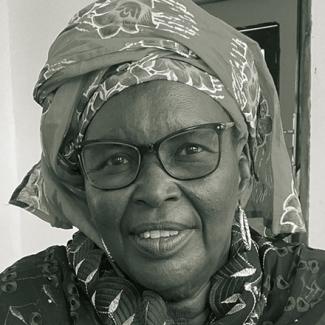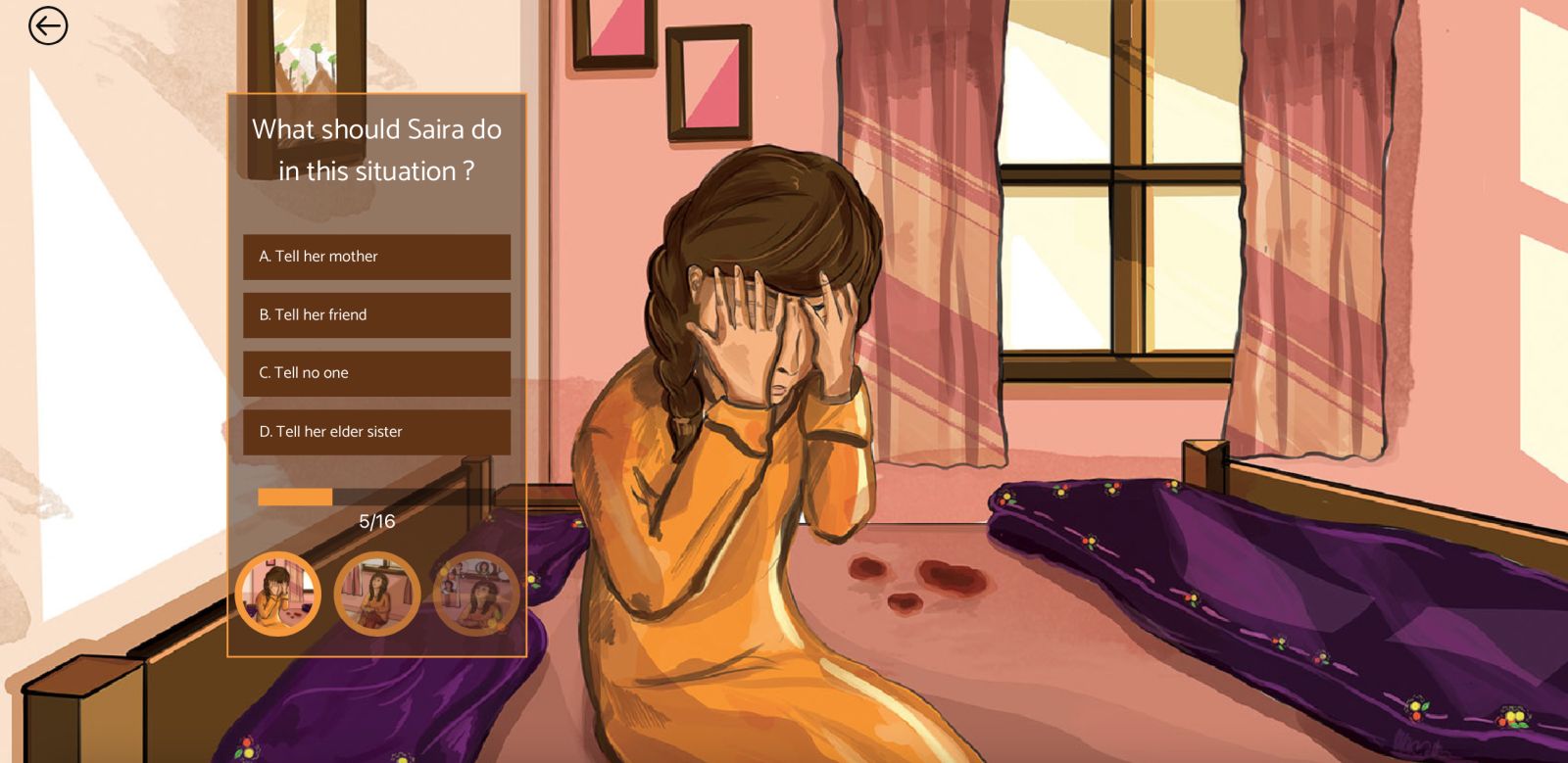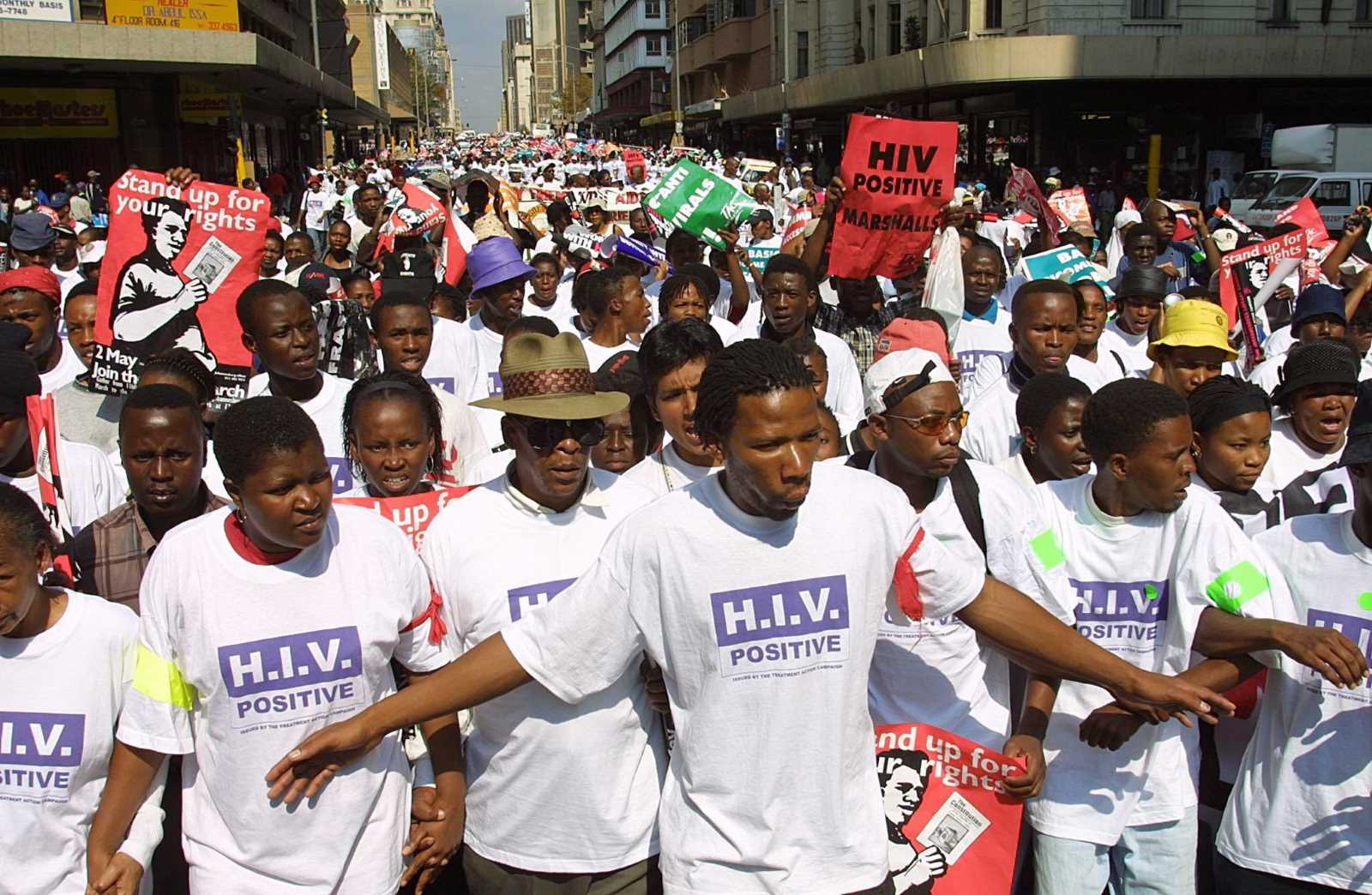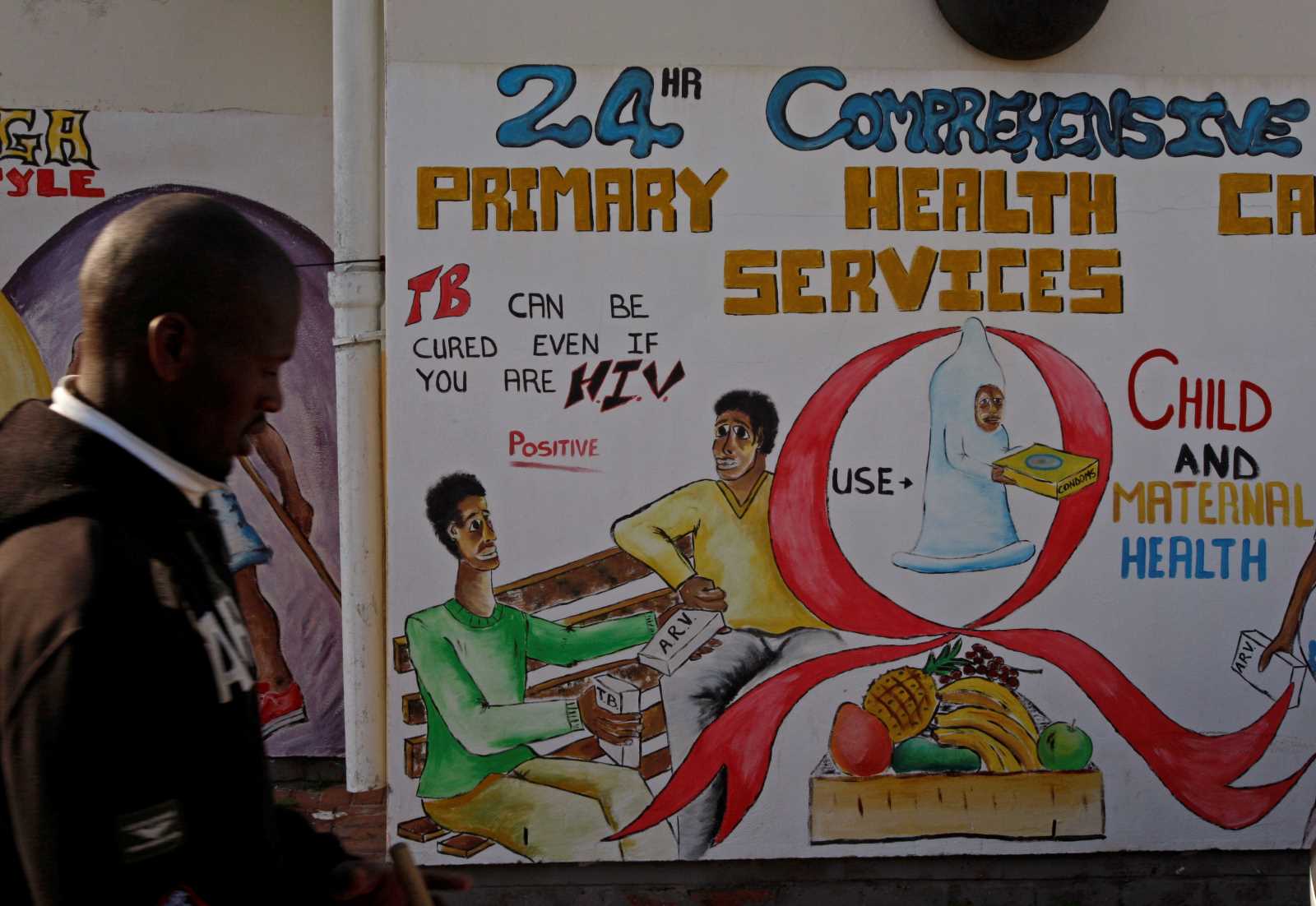Local health experts
Engagement for healthy babies and mothers
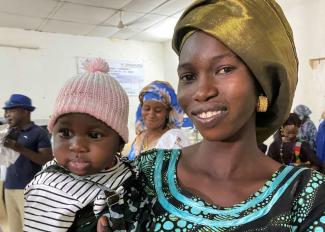
In Senegal, women typically have multiple children and live in the same house as their mother and other female relatives. One would think that women would pass on their knowledge about periods, childbirth and infant care to their daughters. Why are health consultants like you needed?
In Senegal, there is an enormous need for advice and female advocacy. There are various reasons for this. The topics of menstruation and sexuality, for example, are still fraught with taboo and a great deal of shame. There is widespread ignorance regarding the care and feeding of babies and small children. Of course, some young women are better informed than others. It depends largely on their relationship with their mother. Some can talk to their mother about anything, and some have no access to her or are ashamed to talk to her. These girls need experienced outsiders like us to explain everything to them and answer their questions.
How do you reach the people?
International non-governmental organisations have many programmes aimed at education and counselling. But the people they employ are foreign to the region and therefore do not enjoy local people’s trust. Conversely, we Badianu-Gokhs are women who come directly from the same cities or districts as the people seeking advice. We are chosen by local leaders like the head of the neighbourhood, the imam and representatives of women’s organisations. We have known the people in the neighbourhood for years. We are related to many of them and are also perceived as relatives. That is what is crucial about the Badianu-Gokhs’ approach.
What kind of questions do you typically get?
We have a lot of very young girls here who become unintentionally pregnant at 15 or 16. They hide their pregnancies for as long as possible. We want to empower these girls and explain what to expect during the birth and what is important for the baby. We also help them talk to their families.
Young girls whose bodies have not yet matured can experience complications during childbirth, like failure to progress during labour, bleeding or others. There are also girls whose genitals have been circumcised, which is a situation that requires special expertise in obstetrics. We explain to expecting mothers what they might face and what they can do in case of problems. If medical treatment is needed, we refer them to the appropriate physicians.
These girls, who are practically still children themselves, often hide their pregnancies and bind their stomachs. As a result, they have very small babies weighing only two to three kilos at birth. Fortunately, these children are usually healthy, but they require special attention to ensure that they develop normally.
What exactly do these babies need?
They need nutritious food above all. The first choice, as we tell the young mothers, is always breast milk. However, some cannot nurse or do not have enough milk to satisfy their babies. Then we show the mothers how to prepare suitable baby food from local grains like millet, rice or couscous. Since we do not have baby bottles, babies receive liquid porridge right from the start. It works very well.
Administering vitamin A is also an essential part of infant nutrition here. We explain to the mothers that all of the children here receive too little vitamin A. Many children are malnourished due to a lack of fruit and vegetables. They are not hungry, but they are missing essential nutrients like iron, zinc or vitamin A. Experts call this “hidden hunger”. Malnutrition slows physical and cognitive development. People feel the effects for the rest of their lives. They are more susceptible to infections and have a harder time concentrating.
In addition to educating the mothers about nutrition, we also explain to them the importance of immunisation and encourage them to have their babies receive all the standard vaccines against diseases like diphtheria, pertussis, tetanus, polio, tuberculosis and hepatitis B.
What other advice do you give young mothers in Podor about their babies?
Proper hygiene is important. For those who can afford it, it has become fashionable to use cheap disposable diapers or plastic pants made in China. They contain plastic and chemicals that do not allow any air to reach the baby’s bottom. Moreover, they often do not create a tight enough seal and the baby’s waste leaks out of the sides. All of these issues can irritate the baby’s skin. These diapers are also very bad for the environment. We advise women to use traditional cloth diapers. They are cheap, breathable and therefore good for the baby’s skin. They are also environmentally friendly. Of course, they require a little more work, because they have to be washed.
In addition to hygiene, there is another important point: we ensure that all of our clients’ babies are officially registered and receive a birth certificate. We make it clear how important it is to have this document. Without a birth certificate, children cannot be registered for school or exams. They lack important rights like the right to vote, the right to receive social services and others. In Senegal, there are thousands of pupils every year who cannot be admitted to final exams because they lack identification papers.
What kind of advice do you give regarding menstruation?
The topic still carries a lot of shame and taboo. Girls will not even talk to their mothers about it. Many girls have pain or miss class because of their periods. We explain how they can go to school despite being on their period. Important aspects are protective pads and functioning school toilets. If girls have pain, we refer them to a physician. I also want to emphasise that we warn the girls about early pregnancy and explain the risks. We educate them about contraception too. We hope these measures will prevent some early pregnancies.
Where do you offer your services, and who finances the Badianu-Gokhs?
At the moment, we provide counselling in the library of the Racine Cheikh Sow primary school in the centre of Podor. However, we are hoping that a health and counselling centre will be built soon. Senegalese activist Mariame Racine Sow, who lives in Germany, is driving this project forward. She is currently looking for a construction site in Podor and is hoping to gather the necessary funds from governmental and non-governmental organisations or foundations. She also financed some of our courses on menstruation through donations from the Schmitz-Foundations. Our work is partially financed by Senegal’s Ministry of Health. Sometimes the people who come to us leave a small donation. Generally speaking, however, our pay is very low.
Dédé Fall is a health consultant in Podor, Senegal. She is the mother of five children and has acquired her knowledge about reproductive health, menstruation and maternal and child health through numerous training courses.
euz.editor@dandc.eu
